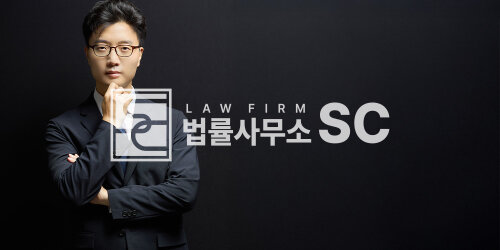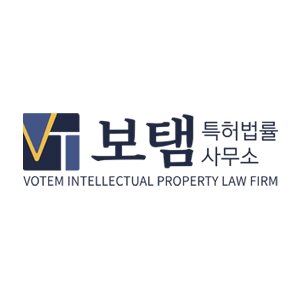Best Corporate Governance Lawyers in Seoul
Share your needs with us, get contacted by law firms.
Free. Takes 2 min.
List of the best lawyers in Seoul, South Korea
About Corporate Governance Law in Seoul, South Korea
Corporate governance in Seoul, South Korea refers to the structures, processes, and regulations that guide the direction and control of companies. It encompasses how companies are managed, how decisions are made, and how the interests of shareholders, management, customers, suppliers, financiers, government, and the community are balanced. With Seoul as the financial and business hub of South Korea, the city observes robust governance rules that align with international standards. South Korean corporate governance laws aim to promote transparency, accountability, and fairness within corporations, largely shaped by legislative reforms following the Asian financial crisis in the late 1990s.
Why You May Need a Lawyer
There are numerous situations where seeking legal guidance on corporate governance matters in Seoul can be crucial. Common scenarios include:
- Establishing or restructuring a company and determining the optimal governance model
- Advising on compliance with the Korean Commercial Act and other relevant legislation
- Handling disputes among shareholders or between shareholders and directors
- Ensuring proper conduct of board meetings and shareholder assemblies
- Dealing with regulatory investigations or potential breaches of fiduciary duty
- Implementing and reviewing internal control systems or compliance policies
- Advising on mergers, acquisitions, and corporate restructuring
- Handling whistleblower claims and issues related to corporate misconduct
- Protecting minority shareholder rights
- Addressing conflicts of interest within management or the board
Because the legal requirements and best practices can be complex and frequently updated, tailored advice from a qualified lawyer can help you navigate these challenges effectively.
Local Laws Overview
Several laws and regulations shape corporate governance in Seoul, the most significant being the Korean Commercial Act (KCA), which governs the conduct and structure of most corporations, including listed and non-listed companies. Some key provisions include:
- Board Structure: Most companies use a board of directors that oversees management. Listed companies may need to form an audit committee comprised largely of outside (independent) directors.
- Shareholder Rights: The KCA and related regulations cover shareholder meetings, minority rights, voting procedures, and mechanisms to prevent abuse by controlling shareholders.
- Fiduciary Duties: Directors are legally obligated to act in good faith, exercise reasonable care, and avoid conflicts of interest.
- Disclosure and Transparency: Publicly traded companies have to disclose financial and corporate information regularly to the Korea Exchange and Financial Supervisory Service.
- Recent Reforms: There is increased emphasis on board independence, anti-corruption policies, internal controls, and addressing environmental, social, and governance (ESG) issues.
Penalties for breaches of these laws may include fines, liability for damages, or even criminal punishment in serious cases.
Frequently Asked Questions
What is corporate governance?
Corporate governance refers to the system of rules, practices, and policies that direct and control a company. In Seoul, this involves legal compliance, oversight responsibilities, transparent decision-making, and protecting stakeholders’ interests.
Which law mainly governs corporate governance in Seoul?
The Korean Commercial Act is the primary law governing most corporate governance matters, with additional regulations for listed companies and specific industries.
Do South Korean companies need independent directors?
Yes, listed companies are generally required to appoint a certain number of independent, or outside, directors, especially if they surpass certain asset thresholds.
How are shareholder rights protected?
Shareholder rights are safeguarded through laws that enable attending and voting at meetings, proposing agenda items, requesting extraordinary meetings, and bringing derivative actions against directors.
What are the main duties of a company's board of directors?
The board oversees company management, makes major business decisions, appoints executives, and is responsible for ensuring legal compliance and protecting the interests of the company and its shareholders.
What fiduciary duties do directors owe?
Directors must act in good faith, with due care, and in the best interest of the company, avoiding conflicts of interest and refraining from self-dealing.
Can shareholders or directors be held liable for wrongdoing?
Yes, both shareholders (in limited situations) and directors can face civil or criminal liability for breaches of their duties, illegal actions, or willful misconduct.
Are there disclosure and transparency requirements?
Yes, especially for listed companies, there are strict requirements to disclose financial statements, executive compensation, and any material company changes to regulators and shareholders.
How are corporate disputes typically resolved?
Disputes can be addressed through negotiation, mediation, arbitration, or litigation in court, depending on the nature of the issue and the parties involved.
Is ESG (Environmental, Social, Governance) important in South Korean corporate law?
ESG issues are becoming increasingly relevant, with companies encouraged to adopt policies that consider sustainability, ethical management, and social responsibility.
Additional Resources
If you need further guidance, the following organizations and bodies can offer valuable information on corporate governance in Seoul:
- Ministry of Justice - Oversees company and commercial law matters
- Financial Services Commission - Regulator for financial markets and listed companies
- Korea Exchange (KRX) - Publishes rules and resources for listed companies
- Financial Supervisory Service - Supervises compliance and investigates breaches
- Korean Bar Association - Directory of qualified lawyers specializing in corporate law
- Korea Corporate Governance Service - Provides research and guidelines on best governance practices
Next Steps
If you think you need legal advice or representation regarding corporate governance in Seoul, consider the following steps:
- Clearly define your legal concern or question to help identify the expertise required
- Research and contact local attorneys who specialize in corporate law and governance
- Prepare any relevant documents, such as company bylaws, shareholder agreements, or previous correspondence
- Schedule a consultation to discuss your matter in detail and explore the best strategy
- Follow up on your lawyer’s advice and continue to monitor regulatory updates that may affect your company
Taking early action and seeking professional guidance can help safeguard your business interests and ensure compliance with South Korea’s evolving corporate governance standards.
Lawzana helps you find the best lawyers and law firms in Seoul through a curated and pre-screened list of qualified legal professionals. Our platform offers rankings and detailed profiles of attorneys and law firms, allowing you to compare based on practice areas, including Corporate Governance, experience, and client feedback.
Each profile includes a description of the firm's areas of practice, client reviews, team members and partners, year of establishment, spoken languages, office locations, contact information, social media presence, and any published articles or resources. Most firms on our platform speak English and are experienced in both local and international legal matters.
Get a quote from top-rated law firms in Seoul, South Korea — quickly, securely, and without unnecessary hassle.
Disclaimer:
The information provided on this page is for general informational purposes only and does not constitute legal advice. While we strive to ensure the accuracy and relevance of the content, legal information may change over time, and interpretations of the law can vary. You should always consult with a qualified legal professional for advice specific to your situation.
We disclaim all liability for actions taken or not taken based on the content of this page. If you believe any information is incorrect or outdated, please contact us, and we will review and update it where appropriate.















